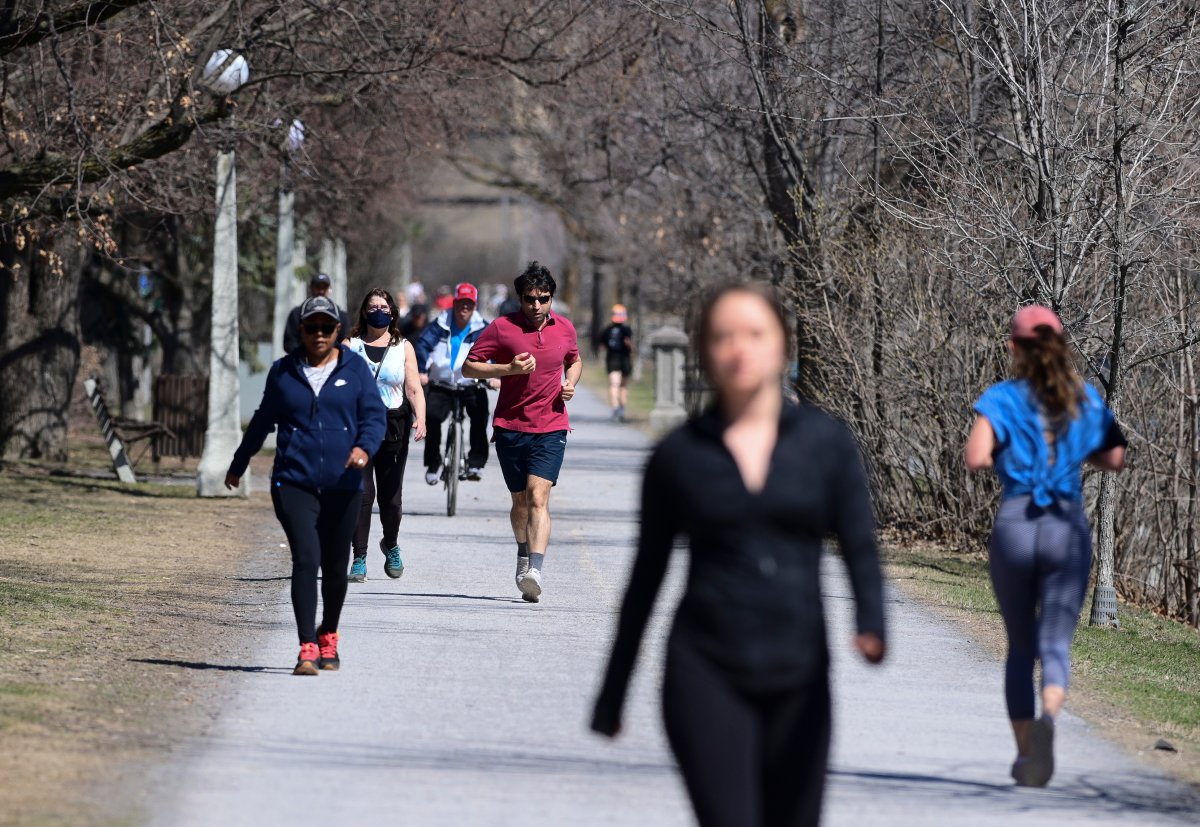Ottawa health officials issued a dire warning Wednesday about the state of COVID-19 in Ottawa, cautioning residents that unless the latest wave of the virus is curbed quickly, hospitalizations in the city will quickly overwhelm the local health-care system.

Dr. Brent Moloughney, Ottawa’s deputy medical officer of health, told councillors and members of the media in a technical briefing Wednesday afternoon that the COVID-19 situation in the capital is at its worst point since the pandemic began locally some 13 months ago.
“Both in terms of case numbers and the proportion of people testing positive, we’ve never seen anything like this before,” he said.

Ottawa Public Health reported 329 new COVID-19 cases and three new deaths related to the virus on Wednesday. There are now 2,755 active cases of the virus locally.
The coronavirus positivity rate in Ottawa rose to 10.6 per cent between April 7 and 13, the highest mark yet. On April 11, OPH reports the daily positivity rate hit 15.8 per cent.
The most troubling situation is in Ottawa hospitals, where 92 COVID-19 patients are now admitted with 23 in intensive care.
Local facilities have been forced to adopt unprecedented emergency measures to accommodate the growing number of hospitalizations, with the Children’s Hospital of Eastern Ontario announcing Tuesday it will start to accept overflow adult patients from other institutions in the city for the first time in its history.
- Canadian man dies during Texas Ironman event. His widow wants answers as to why
- ‘Super lice’ are becoming more resistant to chemical shampoos. What to use instead
- Canadians more likely to eat food past best-before date. What are the risks?
- Treatment from female doctors leads to lower death rates, study finds
Moloughney said the situation in Ottawa hospitals will likely worsen to a high of 200 hospitalizations in the week ahead as some of the record number of people testing positive for the virus in the past few days will start to develop worse symptoms requiring admission to hospital.
COVID-19 hospitalizations in Ottawa have been doubling every 12 days, so while it might well be too late to stop the 100 coronavirus patients from becoming 200 next week, Moloughney said individual and collective actions today can prevent that figure from hitting 400 next month.
In addition to closing some popular parks two hours earlier each night, Moloughney said OPH will be issuing a Section 22 class order last this week to place new restrictions on some outdoor public amenities.
While details of the order are still being finalized, he said it will likely be similar to the directive issued in the winter.
That order saw capacity limits and masks made mandatory around tobogganing hills, ski trail heads and skating rinks. He flagged play structures, basketball courts and skate parks as likely targets for the summer.
But beyond restrictions, either those set out by the city or under Ontario’s stay-home order, Moloughney said residents should govern their behaviour with the same basics that have been repeated by health officials throughout the pandemic.
He noted that while more transmissible variants of concern now make up a majority of COVID-19 cases in Ottawa, the ways to block the variants and the way to block the traditional strains are the same.

Staying home whenever possible, maintaining distance of two metres and wearing a mask when that’s not possible will remain the key behaviours to make it through the latest wave.
Even following the letter of the law is not always the best public health advice, Moloughney said, noting that five people are technically allowed to gather outdoors under Ontario’s stay home order, though they shouldn’t.
“There’s a difference between what’s allowed and what’s a good idea,” he said.
He also cautioned residents about relaxing their behaviours after they’ve been vaccinated.
While COVID-19 vaccines can help to reduce the most severe side effects of the virus, it won’t necessarily stop an individual from contracting the virus or spreading it to others.
“Vaccines are a huge part of the COVID-19 response, but it will take months for enough of the population to be vaccinated to relax public health measures,” he said.
“The simple message is, we are not there yet. This is dangerous and is helping to contribute to the spread of COVID-19 in Ottawa.”
Ottawa has so far administered 85 per cent of the 250,990 COVID-19 vaccine doses the city has received.
Some 22 per cent of eligible Ottawa residents have received their first dose of the vaccine, with roughly 26,000 people now fully vaccinated.
Anthony Di Monte, the head of Ottawa’s vaccine task force, said that while the city’s vaccine deliveries have generally been steady, the city’s upcoming delivery of Moderna doses will likely be delayed.
He said city staff are working to minimize impacts from the delay on vaccination appointments that have already been booked.





Comments